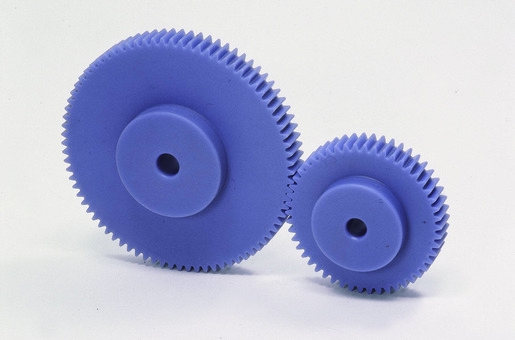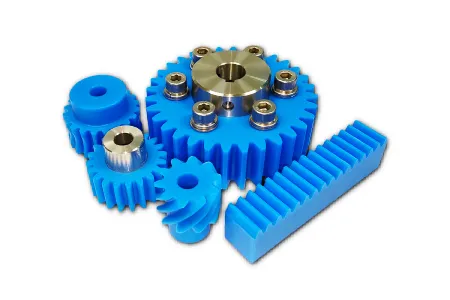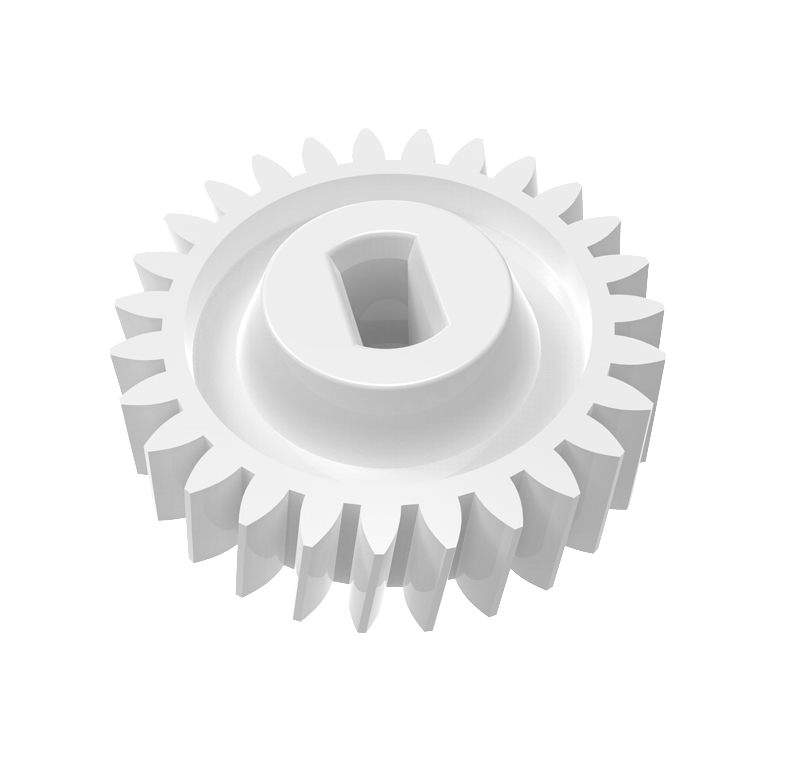Product Description
Custom CNC Resin ABS Plastic Nylon Injection Molding Spur Gear for Machinery
Product Description
| Product Name | Plastic Injection Molding | |
| Material | PP/PE/PS/ABS/PA/PA with GF/POM | |
| Color | Customize | |
| Standard | ISO9001:2015 | |
| Mould material | P20/718/738/NAK80/S136 | |
| Mould base | LKM Mould Base | |
| option | ODM plastic injection molding | |
| Plastic Materials: | PS, ABS, PP, PVC, PBT, PC, POM, PA66, PA6, PBT+GF, PC/ABS, PEEK, HDPE, TPU, PET, PPO,…etc. | |
| Standard: | ISO9001:2015 | |
| Other materials: | Rubber, Silicone rubber, LSR, Aluminum, Zinc, Copper…Metal…etc. | |
| Quality: | RoSH and SGS standard | |
| Feature: | Nonmarking and Nonflash | |
| Size: | According to your 2D, 3D Drawing | |
| Color, Quantity, Unit price, Tooling cost, Tooling size: | To be discussed | |
| Package: | Standard exported Wooden box packed, Fumigation process(upon required) | |
| Mold Building Lead Time: | T1, 4-5 weeks, Part measurement report (upon required). | |
| Export Country: | Europe, Japan, America, Australia, the UK, Canada, France, Germany, Italy…etc.: | |
| Experience: | 13 years of experience in plastic injection mold making and plastic product production. | |
| To be discussed | In-mold decoration, Injection Mould, Plastic Mold, Overmould, 2K Mould, Die-Casting Mould, Thermoset Mold, Stack Mold, Interchangeable Mold, Collapsible Core Mold, Die Sets, Compression Mold, Cold Runner System LSR Mold,…etc. | |
| Mold Base: | Hasco Standard, European Standard, World Standard | |
| Mould Base Material: | LKM, FUTA, HASCO, DME,…etc. Or as per the Customer’s Requirement. | |
| Surface Finish: | Texture(MT standard), High gloss polishing | |
| Cavity/Core Steel: | P20, 2311, H13, 2344, Starvax 420, 236, AdC3, S136, 2312, 2379, 2316, 2083, Nak80, 2767 …etc. | |
| Hot/ Cold Runner | HUSKY, INCOE, YDDO, HASCO, DME, MoldMaster, Masterflow, Mastip, ZheJiang -made brand…etc. | |
| Mould Life: | 5,000 to 1,000,000 Shots. (According to your working environment.) | |
| Design & Program Softwares: | CAD, CAM, CAE, Pro-E, UG, CHINAMFG works, Moldflow, CATIA….etc. | |
| Equipments: | High-speed CNC, Standard CNC, EDM, Wire Cutting, WEDM, Grinder, Plastic Injection Molding Machine for trial out mold from 50-3000T available. | |
Our service
We provide comprehensive turn-key solutions based on our industry clients’ needs
which includes: product design, prototyping, mold making, mass production, assembly,
packing and shipping service.
Quality assurance
We have digital altimeters, calipers, coordinate measuring machines, projectors, roughness
testers, hardness testers, etc. to escort your quality.
We provide you with consumable parts for free.
Mold product details
| Mold Type | China Top Tool Maker MIM injection Multi-Cavity Moulding Mold |
| Design Software | UG, ProE, Auto CAD, Solidworks, etc. |
| Mould Material | 718H, P20, NAK80, S316H, SKD61, etc. |
| The hardness of the steel | 20~60 HRC |
| Mould Base | HASCO, DME, LKM, etc. |
| Runner | Hot runner and cold runner, as per customers’ requirements and part structure. |
| Mold Cavity | Single-cavity or Multi-cavity, as per customers requirement and part structure. |
| Ejection Techniques | Pin ejection, sleeve ejection, bar ejection, blade ejection, etc. |
| Gate Type | Edge gate, sub-gate, pin gate, side gate, etc. |
| Mold hot treatment | Quencher, Nitridation, Tempering, etc. |
| Mould Cooling System | Water cooling or Beryllium bronze cooling, etc. |
| Mould Surface | EDM, texture, high gloss polishing |
| Mould Life | >500,000 shots |
| Equipment | High-speed CNC, standard CNC, EDM, Wire cutting, Grinder, Lathe, Milling machine, plastic injection machine |
| The raw material of metal injection | 316L,17-4ph,420,440c,al203,zr02,si02,fe,ndfeb,smco5,fe-si,wc-co,fe-2ni,fe-8ni,ti,ti-6al-4v, etc. |
| Lead time | 25~60 days |
Packaging & Shipping
|
Shipping & Payment |
||||
|
Packaging |
Ziplock bag or bubble film plus cardboard boxes with wooden pallets outside |
|||
|
Shipping Method |
Sea, Air, DHL, TNT, Fedex, UPS, etc. |
|||
|
Payment Terms |
Trade assurance, T/T, L/C, Western Union |
|||
FAQ
1. Q: Are you a trading company or manufacturer?
A: We’re a factory. We specializing in CHINAMFG for more than years.
2. Q: Do you provide OEM Service? Do you provide customized plastic products?
A: Yes, we provide OEM Service. Customers give us drawings and specifications, and we will
manufacture them accordingly.
3. Q: What is your payment term?
A: We provide payment terms such as L/C, T/T, Paypal, Escrow, etc.
4. Q: What is normal lead time?
A: Average 15-25 days for tooling, bulk orders should be depends on quantity.
If there’s anything we can help, please feel free to contact with us.
/* January 22, 2571 19:08:37 */!function(){function s(e,r){var a,o={};try{e&&e.split(“,”).forEach(function(e,t){e&&(a=e.match(/(.*?):(.*)$/))&&1
| Material: | PP |
|---|---|
| Application: | Medical, Household, Electronics, Automotive, Agricultural |
| Certification: | RoHS, ISO |
| Samples: |
US$ 1/Piece
1 Piece(Min.Order) | Order Sample plastic part
|
|---|
| Customization: |
Available
| Customized Request |
|---|
.shipping-cost-tm .tm-status-off{background: none;padding:0;color: #1470cc}
|
Shipping Cost:
Estimated freight per unit. |
about shipping cost and estimated delivery time. |
|---|
| Payment Method: |
|
|---|---|
|
Initial Payment Full Payment |
| Currency: | US$ |
|---|
| Return&refunds: | You can apply for a refund up to 30 days after receipt of the products. |
|---|

Can plastic gears withstand high torque and load conditions?
Plastic gears have certain limitations when it comes to withstanding high torque and load conditions. Here’s a detailed explanation of their capabilities:
Plastic gears can be designed and manufactured to handle a range of torque and load conditions, but their performance is generally inferior to that of metal gears in high-stress applications. The specific capabilities of plastic gears depend on various factors, including the chosen plastic material, gear design, tooth profile, and operating conditions.
While plastic gears may not be suitable for extremely high torque or heavy-load applications, they can still provide reliable performance in many moderate-load scenarios. Plastic gears are commonly used in applications with light to moderate loads, where their unique properties and advantages outweigh their limitations.
Some plastic materials, such as acetal (POM) and polyamide (nylon), offer good strength and wear resistance, allowing them to handle moderate torque and load conditions. These materials can be reinforced with additives or fillers to enhance their mechanical properties and increase their load-bearing capacity.
It’s important to note that when designing with plastic gears, engineers must carefully consider factors such as gear size, tooth geometry, material selection, and operating conditions. Reinforcement techniques, such as using metal inserts or reinforcing fibers, may be employed to improve the strength and load-bearing capabilities of plastic gears in certain applications.
In high torque or heavy-load applications, metal gears, particularly those made from steel or other high-strength alloys, are generally preferred due to their superior strength and durability. Metal gears offer higher load capacities, better resistance to deformation, and increased resistance to wear under extreme conditions.
Ultimately, the suitability of plastic gears for high torque and load conditions depends on the specific requirements of the application and the trade-off between the benefits of plastic gears, such as weight reduction and noise reduction, and the higher load-bearing capabilities of metal gears.
It’s recommended to consult with gear manufacturers or mechanical engineers to determine the most appropriate gear material and design for a particular application, especially when high torque and load conditions are expected.

What are the factors affecting the durability of plastic gears?
The durability of plastic gears can be influenced by various factors. Here’s a detailed explanation of these factors:
1. Material Selection: The choice of plastic material is a critical factor affecting the durability of plastic gears. Different plastic materials have varying mechanical properties, including strength, stiffness, impact resistance, and wear resistance. Selecting a material with suitable properties for the specific application is essential to ensure long-term durability.
2. Load and Stress: The magnitude and distribution of the applied load significantly impact the durability of plastic gears. Excessive loads or high stress concentrations can lead to deformation, fatigue, or even failure of the gear teeth. Proper consideration of the anticipated loads and stress distribution is crucial during the design phase to ensure that the gears can withstand the expected operating conditions.
3. Operating Speed: The rotational speed at which the plastic gears operate can affect their durability. Higher speeds can generate more heat due to friction, potentially leading to thermal degradation or wear. The material selection and design should account for the anticipated operating speeds to ensure that the gears can withstand the associated stresses and temperature rise without compromising their durability.
4. Lubrication: Proper lubrication is vital for reducing friction, minimizing wear, and enhancing the durability of plastic gears. Insufficient or improper lubrication can result in increased friction, leading to accelerated wear and potential gear failure. The selection of suitable lubricants and appropriate lubrication methods is essential to ensure optimal performance and durability.
5. Environmental Conditions: The environmental conditions in which plastic gears operate can impact their durability. Factors such as temperature extremes, humidity, exposure to chemicals or UV radiation, and presence of abrasive particles can degrade the plastic material over time. It’s important to consider the anticipated environmental conditions and select a plastic material that offers sufficient resistance to these factors.
6. Gear Design: The design of plastic gears can greatly influence their durability. Factors such as tooth profile, gear geometry, clearances, and load distribution should be optimized to minimize stress concentrations, prevent excessive wear, and ensure even load distribution across the gear teeth. Proper design considerations, including appropriate fillets, reinforcements, and tooth profiles, can improve the durability of plastic gears.
7. Manufacturing Quality: The quality of the manufacturing process and the precision of the gear manufacturing can impact its durability. Inadequate manufacturing processes or poor quality control can result in dimensional inaccuracies, surface defects, or material inconsistencies that can compromise the gear’s durability. Ensuring high-quality manufacturing practices and inspections is essential to maintain the durability of plastic gears.
8. Maintenance and Service Life: The maintenance practices and service life of plastic gears can affect their durability. Regular inspection, proper lubrication, and timely replacement of worn or damaged gears can help extend their lifespan. Neglecting maintenance or operating gears beyond their intended service life can lead to accelerated wear and reduced durability.
By considering these factors, such as material selection, load and stress, operating speed, lubrication, environmental conditions, gear design, manufacturing quality, and maintenance practices, it’s possible to optimize the durability of plastic gears and ensure their long-term performance.

Are there different types of plastic materials used for making gears?
Yes, there are different types of plastic materials used for making gears. Here’s a detailed explanation of some commonly used plastic materials in gear manufacturing:
- Acetal (Polyoxymethylene – POM): Acetal is a popular choice for gear applications due to its excellent strength, dimensional stability, low friction, and wear resistance. It has good machinability and can be easily molded into gears with precise tooth profiles. Acetal gears offer low noise operation and have good resistance to moisture and chemicals. They are commonly used in automotive, consumer electronics, and industrial applications.
- Polyamide (Nylon): Polyamide or nylon is another widely used plastic material for gears. It offers good mechanical properties, including high strength, toughness, and impact resistance. Nylon gears have low friction characteristics, good wear resistance, and self-lubricating properties. They are commonly used in applications such as automotive components, power tools, and industrial machinery.
- Polyethylene (PE): Polyethylene is a versatile plastic material that can be used for gear applications. It offers good chemical resistance, low friction, and excellent electrical insulation properties. While polyethylene gears may have lower strength compared to other plastic materials, they are suitable for low-load and low-speed applications, such as in light-duty machinery, toys, and household appliances.
- Polypropylene (PP): Polypropylene is a lightweight and cost-effective plastic material that finds applications in gear manufacturing. It offers good chemical resistance, low friction, and low moisture absorption. Polypropylene gears are commonly used in various industries, including automotive, consumer electronics, and household appliances.
- Polycarbonate (PC): Polycarbonate is a durable and impact-resistant plastic material used for gears that require high strength and toughness. It offers excellent dimensional stability, transparency, and good resistance to heat and chemicals. Polycarbonate gears are commonly used in applications such as automotive components, electrical equipment, and machinery.
- Polyphenylene Sulfide (PPS): Polyphenylene sulfide is a high-performance plastic material known for its excellent mechanical properties, including high strength, stiffness, and heat resistance. PPS gears offer low friction, good wear resistance, and dimensional stability. They are commonly used in demanding applications such as automotive transmissions, industrial machinery, and aerospace equipment.
These are just a few examples of the plastic materials used for making gears. The choice of plastic material depends on the specific requirements of the gear application, including load capacity, operating conditions, temperature range, chemical exposure, and cost considerations. It’s important to select a plastic material that offers the necessary combination of mechanical properties and performance characteristics for optimal gear performance.


editor by Dream 2024-04-24